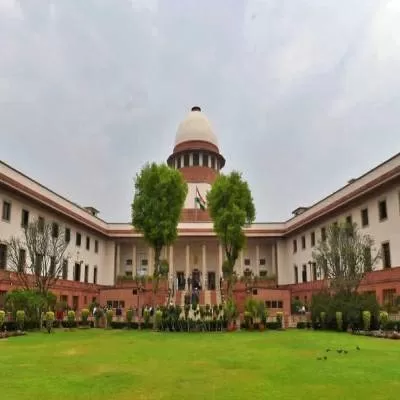Schedule a Call Back
Supreme Court Empowers States to Tax Mineral Resources
 In a landmark decision on July 25, 2024, the Supreme Court empowered state governments across India to impose taxes on mineral resources, clarifying that royalties currently paid by miners do not qualify as taxes. This significant ruling is poised to reshape the cost structures within the mining industry and is expected to cascade through sectors reliant on these materials, notably steel, potentially affecting prices for Indian consumers.
In a landmark decision on July 25, 2024, the Supreme Court empowered state governments across India to impose taxes on mineral resources, clarifying that royalties currently paid by miners do not qualify as taxes. This significant ruling is poised to reshape the cost structures within the mining industry and is expected to cascade through sectors reliant on these materials, notably steel, potentially affecting prices for Indian consumers.
The judgment arrives amid ongoing debates over fiscal federalism and is seen as a pivotal move that could lead to increased production costs across several core sectors of the economy. "The ruling might elevate production costs, affecting miners' profitability and future investments," said Anshuman Bharati, a credit analyst at S&P Global Ratings. He further noted, "This in turn could reverberate to sectors that consume these materials, such as steel, aluminium, cement, oil and gas, and coal."
Uncertainty remains on whether all states will levy such taxes and at what rates, but the impact on mineral prices is expected to translate into higher costs for downstream industries and end consumers. The steel industry, in particular, could face severe repercussions. Currently, domestic steel prices are nearly equivalent to the cost of Chinese imports, and any further increase could push Indian companies into a tighter competitive spot.
Estimations by S&P Global Ratings suggest that a 15 percent tax on iron ore, if uniformly applied, could raise the per ton cost of steel by ?1,500 (about US$17.8). Such an increase could hinder the ability of steel companies to pass these costs onto their customers, potentially slowing down debt reduction efforts and curbing growth within the sector. "If the India-based steel companies can't pass on higher inputs due to higher mineral taxes, this would add further downside pressure on relatively weaker credit metrics across the sector," Bharati added.
The ruling also opens up the potential for retrospective taxes, which could lead to disputes and litigation, similar to the issues faced by the telecom sector in 2020 with adjusted gross revenue dues. The industry is closely watching for any updates on whether the Supreme Court will allow retrospective application of the taxes, which could compound the financial challenges for mining companies.
The outcome of this ruling is a crucial watchpoint for the mining sector, as it could deter future investments and reshape the competitive landscape of Indian industries reliant on mineral resources.


Subscribe Now
Subscribe to our Newsletter & Stay updated
RECENT POSTS
Popular Tags
Folliow us










